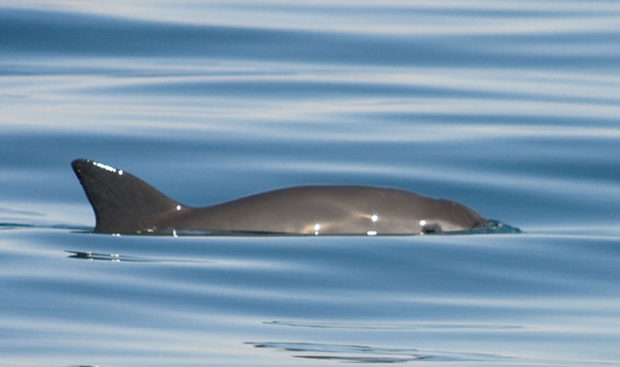
One of the world’s most endangered animals could face extinction within a year if illegal fishing nets continue to be used, it has been claimed.
Researchers at the University of St Andrews have warned urgent action is needed if the rare vaquita porpoise, which only lives in the upper Gulf of California in Mexico, is to be saved.
According to a study by Royal Society Open Science, the number of vaquita porpoises may have dropped to fewer than 10 – with the worldwide population in 2016 estimated at 30.
Despite a ban by the Mexican Government on the use of the gillnet – which causes porpoises to be killed as a by-catch – illegal fishing has continued
Since the ban was introduced in 2017, 10 dead vaquita porpoises have been found, with all deaths where deaths could be determined attributed to drowning in the nets.
Professor Len Thomas, from the University of St Andrews Centre for Research into Ecological and Environmental Modelling (CREEM), was invited to participate on an international expert panel of ecological statisticians to analyse the data.
He said: “The ongoing presence of illegal gillnets despite the emergency ban continues to drive the vaquita towards extinction.
“Immediate management action is required if the species is to be saved.”
It is estimated the number of vaquita has fallen by 98.6% since monitoring began in 2011 and by nearly 50% each year since a 2016 study.
Researchers’ best estimate is there were nine animals remaining at the end of the last acoustic survey in August 2018.

Enjoy the convenience of having The Sunday Post delivered as a digital ePaper straight to your smartphone, tablet or computer.
Subscribe for only £5.49 a month and enjoy all the benefits of the printed paper as a digital replica.
Subscribe